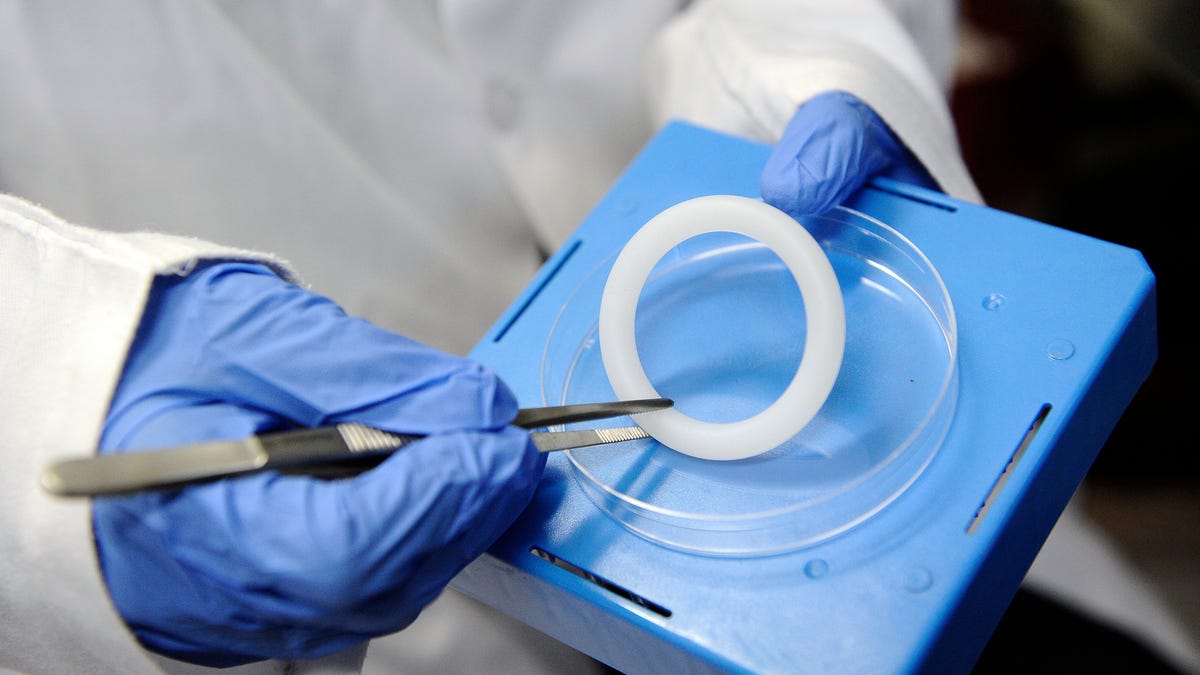

The next generation of HIV / AIDS prevention drugs and treatments continues to look promising. New research published on Tuesday suggests that people can safely carry vaginal ring-based treatment designed to prevent HIV infection for three months. A monthly version of the same drug is already being weighed for approval in African countries and elsewhere.
The treatment is called dapivirine. Like other antiretroviral drugs, it works by inhibiting the ability of HIV to replicate inside cells. Since 2014, the International Partnership for Microbicides (IPM), a non-profit organization focused on the development of HIV prophylaxis for women in lower-income countries, has owned the rights to dapivirine and is seeking approval. medicine as the first -intravaginal ring of its kind that can reduce a person’s risk of infection. This would turn the drug into a form of pre-exposure prophylaxis, or (PrEP). Currently, the only available form of PrEP is a pill that should be taken daily.
In late 2019, following the completion of two Phase III trials in Africa, a monthly formulation of dapivirine was submitted for approval by the European Medicines Agency (EMA). Last year, the EMA conducted a positive review of data from clinical trials, which found that women with dapivirine were 27% to 35% less likely to contract HIV than those in the control group. Earlier this January, the World Health Organization recommended dapivirine as a treatment that should be included as one of several HIV prevention options. The IPM has said they are applying for dapivirine approval in several countries in sub-Saharan Africa, where HIV rates among women remain very high. Last week, too applied for approval of the drug by the U.S. Food and Drug Administration.
As this process unfolded, the IPM, in collaboration with the U.S. National Institutes of Health, has been testing whether a more durable version of the ring could be better for women, since it is likely to be be made available to the public. Its preliminary results, detailed on Tuesday in the (virtual) Conference on retroviruses and opportunistic infections, they seem to point in that direction.
The Phase I study included 49 HIV-negative healthy women and female assignees at birth in the United States. Two groups of volunteers wore a ring containing 100 milligrams or 200 milligrams of dapivirine for 90 days, while a third wore the monthly ring shape, which contained 25 milligrams of dapivirine, during the same time. They were then monitored for 13 weeks.
G / O Media may receive a commission
All three groups appear to tolerate their rings well, finding no serious health risks during the study. But those carrying the 90-day version had higher levels of dapivirine in their blood and cervical tissue. This indicates that the drug could be more potent and effective in preventing HIV when used in this more durable form.
The still preliminary results need to be taken into account. And phase I trials are specifically designed to test the safety of an experimental treatment, not its effectiveness. But if the monthly form of the dapivirine ring is approved as expected later this year, it would not be an obstacle to bring a 90-day version to the public eventually, assuming this research continues to be promising. IPM is also testing a version of the ring that would contain dapivirine and a long-acting contraceptive.
“Regulatory approval of the monthly ring would be an incredible milestone for women, who have been the face of the HIV epidemic in much of the world and need and deserve to have a range of safe and effective methods. Hopefully , a long-lasting dapivirine ring that women replace every three months may be another option available to women in the not-too-distant future, “said study author Albert Liu, director of clinical research of the San Francisco Department of Public Health. a statement published by the Microbicide Trials Network, a project funded by the U.S. National Institutes of Health to study and help develop preventive treatments for sexually transmitted diseases such as HIV.
Recently, there has been a lot of encouraging news in the world of HIV research. Aside from the vaginal ring approach, work is underway to develop other longer-lasting versions of PrEP, taken as injection oa pill, for people at higher risk of infection. And in February, it was the first long-term HIV treatment (a series of two injections, taken monthly). approved by the FDA, called Cabenuva. Since then, there is recent research suggested that Cabenuva can be taken up to six times a year and that the manufacturer of the drug, VIVi Healthcare, has submitted an updated approval of the bimonthly version.